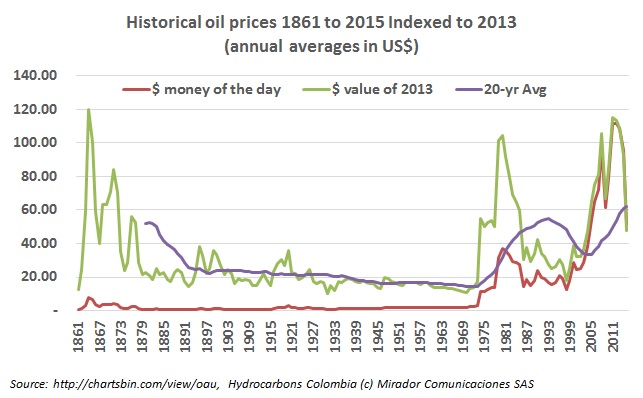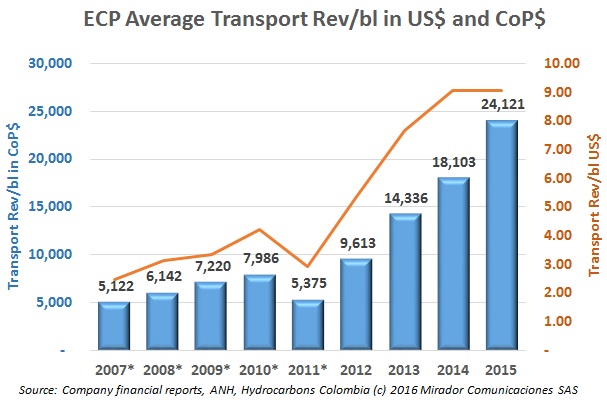The USO has jumped into the controversy surrounding the environmental license of Hupecol in La Macarena, warning of the damage which could occur from granting licenses like these.

About twice a year we have a reason to publish a long term graph with oil prices in real terms going back to 1986. We had heard of but not found a series going back to the 1920s. Last week at the Association International of Petroleum Negotiators (AIPN) meeting in Bogotá, we saw a graph going back to 1861. The source for this proved easy to find and so appears above.

Following on his order to study tax breaks for the oil industry, President Juan Manuel Santos has now called on sector entities to study a reduction in pipeline rates to boost the industry’s financial standing.
The National Hydrocarbons Agency (ANH) is defining the final terms of its “Permanent and Dynamic Area Assignment” plan and then will send it for review to the Superintendence of Industry and Commerce (SIC), so that the parameters will be ready by the end of the month. The first “mini-round” would then occur at the end of May or latest by June.
Repeated calls for action from national authorities from Barrancabermeja politicians and residents earned them a meeting with Ecopetrol (NYSE:EC) president Juan Carlos Echeverry. The NOC chief did not budge on decisions to not modernize the city’s refinery, but said it remains a strategic asset for the firm.
There were small signs of advances in the talks with the Farc this week, with the final details of some of the most delicate issues -referendums, Farc prisoners abroad and the post-conflict judicial process- in discussion.
Government officials from Colombia, Ecuador, Venezuela, Bolivia and Mexico met to discuss cooperation and craft a common message ahead of an OPEC meeting on April 17. Colombia was represented by the Minister of Mines and Energy Lorena Gutiérrez.
The Llanos Orientales and the Meta Department in particular lead the country in royalty irregularities according to an audit performed by the General Controller (CGR) in the second half of 2015.
In 2012 Canacol Energy (TSX:CNE) made a shift away form crude production to natural gas after buying Shona Energy. Its CEO Charle Gamba said at the time the idea was to gain a bit of stability, and today that decision has paid off.

Although there has been a slight recovery of oil prices to the high US$30 range, analysts believe that Colombian operators need prices at US$45 or higher to reactivate stalled exploration activity.